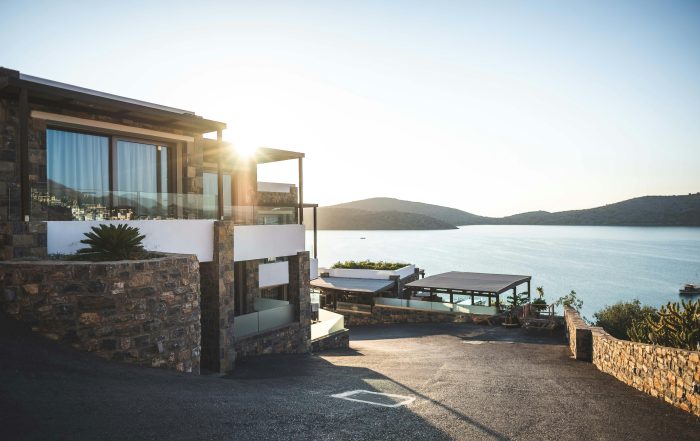A Legal Blueprint for Marinas, Ports & Harbours in Spain
Yachting Law
Operating a marina or port is about more than moorings, it’s a complex ecosystem where legal, regulatory, and operational challenges intersect.
Table Of Contents
A Legal Blueprint for Marinas, Ports & Harbours in Spain
Marinas and ports are bustling hubs, welcoming private and commercial vessels, seasonal traffic and valuable assets.
While day-to-day operations may seem straightforward, the legal landscape behind the scenes is anything but. Local regulations, maritime obligations, insurance requirements and contracts with operators, tenants and service providers all present potential risks.
Legal advice for marinas is not just about avoiding fines; it’s also about ensuring operational decisions are sound, preventing disputes, and managing long-term liabilities.
The Critical Arenas for Legal Oversight
Legal expertise is not just for emergencies; it is a strategic necessity across the entire spectrum of a port’s operations. A marina’s legal challenges are constant and varied, demanding proactive management in several key areas:
- Regulatory Compliance: Ports operate under a complex web of local, national, and EU regulations. Ensuring compliance with everything from environmental standards to safety inspections is fundamental to avoiding penalties and operational delays.
- Contracts and Service Agreements: From slip leases to maintenance and commercial partnerships, every agreement needs clear, enforceable terms to define responsibilities and prevent conflicts.
- Dispute Prevention and Resolution: Proactive legal guidance allows for early intervention in conflicts with boat owners, suppliers, or authorities, mitigating escalation and providing a clear roadmap if litigation becomes necessary.
Legal counsel becomes absolutely critical during key strategic moments, including:
- Launching or expanding a port.
- Negotiating long-term mooring agreements.
- Implementing new environmental or safety regulations.
- Planning investments, renovations, or joint ventures.
The Legal Blueprint: A Framework for Operational Security
While legal oversight is broad, three areas form the core of a marina’s daily operational security. We call this the Legal Blueprint: a framework for building a robust and profitable operation.
The Foundation – The Mooring Agreement
Every legally sound operation is built upon an impeccable foundation. In a marina, that foundation is the mooring agreement. It is not a simple administrative form; it is your most critical asset for risk management, where you formalize your service agreements and define responsibilities.
A professionally drafted contract is your first and strongest line of defence, containing watertight clauses on:
- Clear Definition of Services and Fees: To prevent the invoice disputes that damage client relationships.
- Enforceable Payment and Default Terms: To create the legal basis for action against unpaid fees.
- Legally Sound Liability Limitations: To protect the port from claims, crafted within the bounds of Spanish law to ensure they are not declared “abusive” (cláusula abusiva) and therefore void by a court.
The Walls – Managing Liability & Risk
With a solid foundation, the next step is to protect against external threats. For a marina, the primary threat is liability for damage to vessels, which often stems from a failure in regulatory compliance or operational protocols.
When a yacht is damaged, the claim will be based on the marina’s duty of care and custody (deber de custodia). Your defence must be built on a proactive strategy that includes:
- Documented Protocols: Maintaining clear safety and maintenance protocols is crucial evidence of your diligence, especially when implementing new environmental or safety regulations.
- Contractual and Insurance Defences: Your mooring agreement must define the scope of your liability. Furthermore, your insurance policies must align with these contractual terms and local maritime regulations to ensure you are adequately covered against claims.
The Vault – Securing Your Revenue Streams
A blueprint must protect the most valuable part of the structure: its assets and revenue.
This is where dispute prevention and resolution becomes critical. The most common threat is the client who defaults on mooring fees. Spanish law provides a powerful tool: the Right of Retention (Derecho de Retención).
This allows the marina to legally retain a vessel as security for a proven debt. However, its execution is a formal legal process.
It must be initiated correctly by your lawyer, with formal notifications (burofax), to be effective and avoid a costly counterclaim for illegal retention, thus protecting your income.
FAQs: Legal Advice for Marinas
Do marinas need a lawyer for daily operations?
Not for every routine task, but critical areas, permits, contracts, disputes, expansions, and regulatory compliance, require legal oversight to avoid operational and financial risks.
How can a lawyer help with environmental regulations?
Legal guidance ensures compliance with waste management, dredging permits, emissions rules, and EU maritime directives, avoiding fines and operational restrictions while protecting the marina’s reputation.
Are disputes with vessel owners common?
Yes. Conflicts over mooring fees, damage, or service quality occur frequently. Early legal involvement allows efficient and fair resolution, reducing escalation risks.
When should marinas seek advice on investments or expansion?
Before any construction, land-use modification, or commercial partnership, to confirm permits, zoning compliance, contractual safeguards, and potential liabilities.
How do we legally enforce our “right of retention” on a yacht for unpaid fees in Spain?
This must follow a formal legal process: start with a certified notification (burofax) demanding payment. If unpaid, a lawyer can initiate judicial proceedings, potentially leading to a court-sanctioned auction to recover the debt. Attempting to retain a vessel without legal protocol exposes the marina to liability.
How can a port limit liability for severe storm damage?
While you cannot fully eliminate liability for proven negligence, a multi-layered approach strengthens your defense:
- A robust Mooring Agreement with a clear “force majeure” clause.
- Documented pre-storm safety protocols (e.g., checking lines, issuing warnings).
- Transparent communication to owners about their responsibilities.
Our standard mooring contract is outdated. Is this a risk?
Yes. Spanish and EU consumer law has evolved. Clauses that were standard may now be considered abusive (cláusulas abusivas) and void. A contract not regularly updated by a legal professional is a significant operational risk.
From Blueprint to Operational Excellence
Marinas are dynamic environments, but a complex legal framework lies behind the docks and berths.
A legal blueprint is essential, but its true value is realized through expert execution. Managing a world-class port in Spain requires a world-class legal strategy that is proactive, not reactive.
This approach transforms potential liabilities into controlled risks and turns legal compliance into a competitive advantage.
It is the invisible infrastructure that supports a secure, reputable, and profitable operation.
Discover all our services and contact our experts now. Follow us on Linkedin to make sure you don’t miss a thing.



